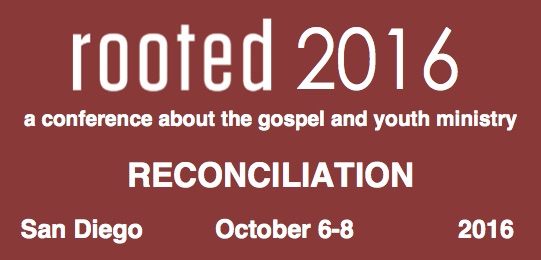As the world bids farewell to the Games of the XXXI Olympiad, I’m reflecting on the ways God has been displayed through them.
On the one hand, he has been appealed to in countless prayers, affirmations, and sign-of-the-cross rituals—some sincere pleas for intervention, others likely superstitious attempts at divine brownie points. On the other hand, the tendency to replace God has been displayed over and over again, too—when athletes have suggested their significance is in their success or when personal identities have crumbled in the wake of defeat.
In my mind, nowhere has God been more uniquely displayed than in the testimony of divers David Boudia and Steele Johnson.
After clinching silver medals in the Synchronized 10m Platform Diving event, David Boudia and Steele Johnson were interviewed by NBC’s Kelly Stavast. There is no “newfound elation” brought on by victory, nor the deflated exasperation that often follows defeat. The two display satisfaction—satisfaction of a variety that seems to transcend any momentary circumstance. It doesn’t take long for the divers to identify the source of their joyful stability; each man insists his ultimate identity is not defined by performance or status, but rather is “rooted in Christ.”
Here are three things we can learn from the divers’ remarks.
1. It is good to enjoy God’s good gifts.
This may seem like a no-brainer, especially in light of Paul’s words: “I know and am persuaded in the Lord Jesus that nothing is unclean in itself” (Rom. 14:4). Even so, some people tend to view meaningful involvement in sports, hobbies, and pastimes primarily from a viewpoint of skepticism and trepidation.
I confess I’m sometimes in this camp. As a student pastor who has the privilege of shepherding a number of 6th grade to 12th grade students (as well as their families), I’m met daily with the realization that the human heart is, as John Calvin called it, a “factory of idols.” I often see the same tendency in these young people that I remember living out during my own years as a student: setting goals in the realms of academics, college acceptance, athletics, Boy Scouts, and music. As a teen I thought, “If I have that, then I’ll feel my life has meaning, then I’ll know I have value, then I’ll feel significant and secure.” In a well-intentioned effort to shepherd believers away from building such false identities for themselves, I’m sometimes tempted to conclude we’d all be better off living lives free of commitment outside the realm of “formal worship.”
Boudia and Johnson present an alternate, biblical viewpoint. Johnson speaks plainly about the joy he derived from giving his best effort. These men show it’s possible (even good) for Christians to maintain a gospel identity while seeking and enjoying success in any number of earthly pursuits—and that doing so is actually a form of worship. As John Piper writes in Brothers, We Are Not Professionals: “The right use of your body and your mind may enable you to see so much of God that you would sacrifice your life for Christ.” Through athletics, academics, art, craftsmanship, gardening, cooking, or anything in-between, God can be glorified when we enjoy such pursuits for what they truly are: gifts of his grace, and opportunities for worship.
2. Jesus gives us a far better identity than we could give ourselves.

While enjoying God’s good gifts is a form of worship, dedicating our existence or defining our identity by such things is idolatry. The tendency to worship creation rather than the Creator is a clear and present danger for every believer. Boudia’s words ground us in the good news of the gospel: “When my mind is on [diving], and thinking I’m defined by [diving], then my mind goes crazy. But [Steel and I] both know that our identity is in Christ.”
Johnson adds, “The fact that I was going into this event knowing that my identity is rooted in Christ, and not what the result of this competition is, just gave me peace.”
Only the gospel frees us from “building our house on the sand” (Matt. 7:26–27). Rather than staking our sense of worth and identity on fleeting pleasures, fickle pursuits, or faulty self-made righteousness, our Savior invites us to be fully known and fully accepted exactly as we are. Jesus powerfully states that he knows us better than we will ever know ourselves: “I know my own and my own know me, just as the Father knows me and I know the Father” (John 10:14–15). The beauty of the gospel is that, even knowing the darkest corners of our broken lives and twisted hearts, Jesus is pleased to do everything necessary to bestow on us an everlasting identity: “I know my own and my own know me . . . and I lay down my life for the sheep.”
Rather than working tirelessly for an identity of our own making, we can rest in the grace-bought identity that belongs to us through God’s Son.
3. Disciple-making matters.
Had it not been for spiritual multiplication, Boudia and Johnson’s interview may never have been a reality. But as he’s been pleased to do throughout his people’s history, God advanced the gospel message through the faithful investment of “older” generations of believers into “younger” generations. Boudia came to Christ through the witness of his college coach, and Johnson describes Boudia as his “mentor.” The sport of diving proved to be more than an enjoyable gift; it served as the setting for the making of a disciple (Boudia), who turned right around to shape a younger Christian (Johnson) in the faith.
Discipleship with any age group is often difficult and discouraging. People are flaky, feelings get hurt, and—spoiler alert—Christians have been known to speak and act like non-Christians. But praise be to God who not only promises to orchestrate gospel advance throughout the world, but also to bring such work to completion in his timing (Phil. 1:6).
So let us be busy with the work of disciple-making, while enjoying God’s gifts and the identity he has bestowed on us through Christ Jesus. And let us watch and be amazed at the work God accomplishes through his Spirit, who is already at work within us.
Editors’ note: This article originally appeared at Rooted Ministry, an organization committed to advancing grace-driven youth ministry.
Download your free Christmas playlist by TGC editor Brett McCracken!
 It’s that time of year, when the world falls in love—with Christmas music! If you’re ready to immerse yourself in the sounds of the season, we’ve got a brand-new playlist for you. The Gospel Coalition’s free 2025 Christmas playlist is full of joyful, festive, and nostalgic songs to help you celebrate the sweetness of this sacred season.
It’s that time of year, when the world falls in love—with Christmas music! If you’re ready to immerse yourself in the sounds of the season, we’ve got a brand-new playlist for you. The Gospel Coalition’s free 2025 Christmas playlist is full of joyful, festive, and nostalgic songs to help you celebrate the sweetness of this sacred season.
The 75 songs on this playlist are all recordings from at least 20 years ago—most of them from further back in the 1950s and 1960s. Each song has been thoughtfully selected by TGC Arts & Culture Editor Brett McCracken to cultivate a fun but meaningful mix of vintage Christmas vibes.
To start listening to this free resource, simply click below to receive your link to the private playlist on Spotify or Apple Music.






























